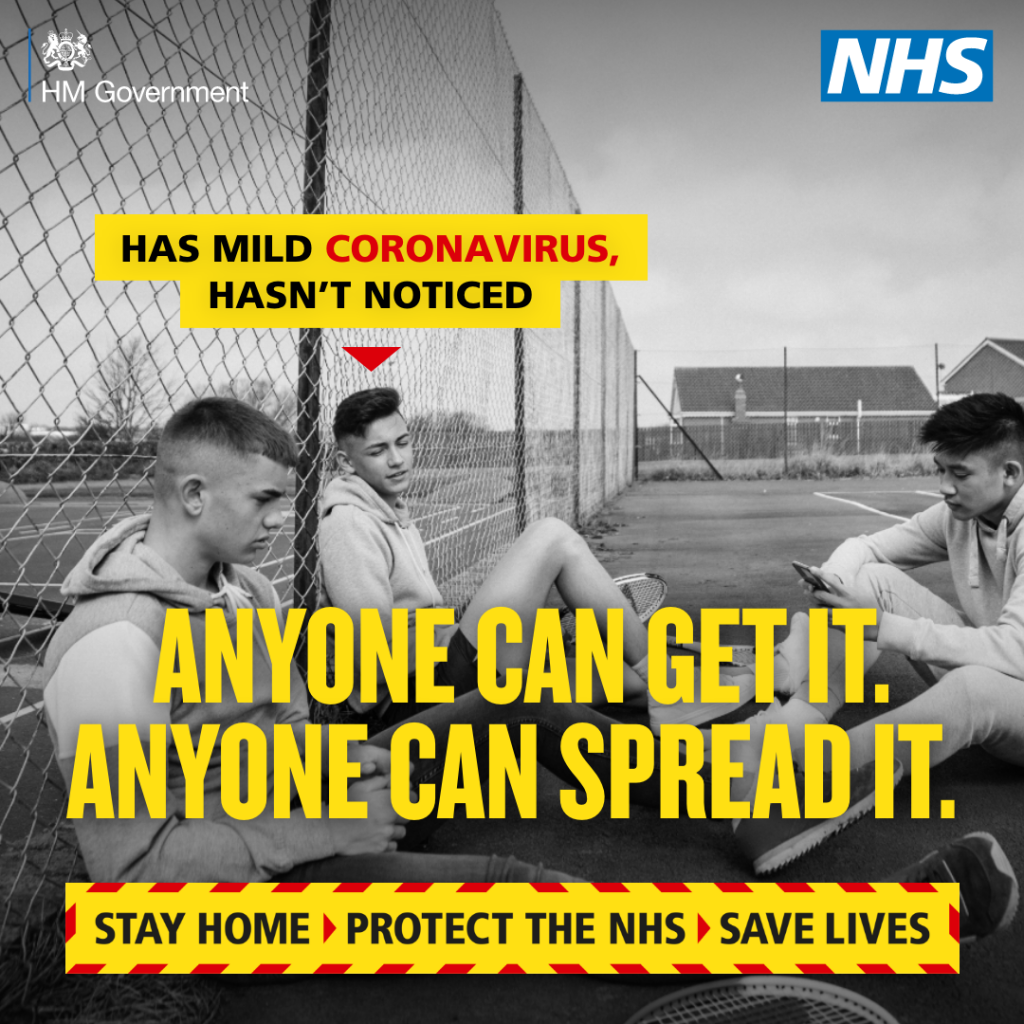You may not know you have Coronavirus – keep your distance!

Recognising symptoms and self-isolation
Do not leave your home if you have symptoms of coronavirus (COVID-19) or live with someone who does. These are:
- a high temperature – this means you feel hot to touch on your chest or back (you do not need to measure your temperature)
- a new, continuous cough – this means coughing a lot for more than an hour, or 3 or more coughing episodes in 24 hours (if you usually have a cough, it may be worse than usual).
This is called self-isolation.
If you are self-isolating, you must:
- not leave your home for any reason. Any exercise should be taken at home, you can use your garden if you have one.
- not go out to buy food or collect medicine – order them by phone or online, or ask someone else to drop them off at your home
- not have visitors, such as friends and family, in your home
You can find more information on self-isolation by clicking here.
How long to stay at home
If you live alone and experience symptoms such as a new and continuous cough or a high temperature, you should stay at home for 7 days.
After 7 days:
- if you do not have a high temperature, you do not need to self-isolate.
- if you still have a high temperature, keep self-isolating until your temperature returns to normal. If you are concerned about your health refer to the NHS 111 service : https://111.nhs.uk/covid-19/
You do not need to self-isolate if you just have a cough after 7 days. A cough can last for several weeks after the infection has gone.
If you live with others and you are the first in the household to have symptoms of coronavirus, then then you must stay at home for 7 days, but all other household members who remain well must stay at home and not leave the house for 14 days. The 14-day period starts from the day when the first person in the house became ill. Click here to see an explanatory graphic.
For anyone else in the household who starts displaying symptoms, they need to stay at home for 7 days from when the symptoms appeared, regardless of what day they are on in the original 14 day isolation period. You can see more information on this by clicking here.
If you live with someone who is 70 or over, has a long-term condition, is pregnant or has a weakened immune system, try to find somewhere else for them to stay for 14 days.
If you have to stay at home together, try to keep away from each other as much as possible. There is more information about staying at home that you can read by clicking here.
For most people, coronavirus will lead to mild to moderate symptoms. It can lead to more serious complications for elderly people and those with pre-existing medical conditions.
If you are experiencing mild symptoms, don’t call NHS 111. You can find advice online at www.nhs.uk/coronavirus. If your symptoms worsen then please call NHS 111 to seek advice.
